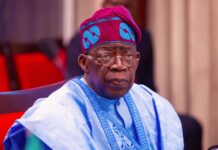The Telecommunication Act of 2003 that empowered the regulatory rights, functions and composition of the Nigerian Communications Commission (NCC) appeared to have envisaged that someone like Dr Isa Pantami would one day become the minister of Communications.
So, it set out in its provisions to put a check on such a minister who would attempt to interfere in the work of the Commission and the sanity of the industry.
It is such clause, conspicuously written in that Act that has put in check Pantami’s predecessors who made attempts to infringe on the statutory rights of the Commission.

This is what the Act says in respect of the minister’s relationship with the NCC in Section 23, chapter 3, part 1 titled Functions Of the Minister And National Frequency Management Council: “In execution of his functions and relationship with the Commission, the Minister shall at all times ensure that the independence of the Commission, in regard to the discharge of its functions and operations under this Act, is protected and not compromised in any manner whatsoever.”
The ACT limits the minister to
- formulation, determination and monitoring, of the general policy for the communications sector in Nigeria with a view to ensuring, amongst others,
- utilization of the sector as a platform for the economic and social development of Nigeria ;
- negotiation and execution of international communications treaties and agreements, on behalf of Nigeria, between sovereign countries and international organisations and bodies ; and
- representation of Nigeria, in conjunction with the Commission, at proceedings of international organisations and for a on matters relating to communications.
Even on policy formulation and review for the industry the minister is requested to cause the Commission on his behalf to first carry out a public consultative process on the proposed policy formulation or modification.
And on formulating and determining the policy or amendments thereto, the Minister and the Council are compelled to take into consideration the findings of the consultative process under subsection (1) of this section.
The Minister is also empowered to, in writing, from time to time, notify the Commission or and express his views on the general policy direction of the Federal Government in respect of the communications sector.
There is nowhere in the NCC Act the minister is allowed to control the work of the NCC and infringe on its operations, as he is currently doing.
NCC has operated in the past without interference, especially under the times of Presidents Olusegun Obadanjo, late Musa Yar’Adua and Goodluck Jonathan who ensured the NCC was not impaired in carrying out its functions.
Those who tried to interfere with the running of the NCC, notably, the current governor of Kaduna, Mallam Nasir el-Rufai and late Dora Akunyili were put under check by Obasanjo. El-Rufai was at the time he tried to challenge the independence of the NCC, a director-general of the Bureau of Public Enterprise, while late Akunyili was minister of communications.
Dr Ernest Ndukwe, who was Executive Vice Chairman of the NCC, from 2000 to 2010, told the story of the shinning regulatory successes of the NCC, in a book titled: Ernest Ndukwe & Telecom Regulation- A Walk In Tandem, written by Aaron Ukodie thus: “The relative shinning performance of the NCC currently could be attributed to the fact that my predecessors were not as fortunate as I am. One operated under late Sanni Abacha, where the supposed regulator was not allowed to act on its initiatives.
“But here we are in a civilian democratic government and pioneering, as it were, a complete liberalization of the telecoms industry.
“Here we with a President who understands what the independence of a regulatory body is, and who is anxious to see winning actions. All this, put together, places us at a vantage point to perform creditably”.
Though Nigeria is still under a democratic government, at least on paper, the acts of the current minister seem to suggest that democratic ethos would not be adhered to in the management of the sector.
The current Executive Vice Chairman, Professor Umar Danbatta and his board of directors, have carried out their regulatory functions creditably well before the coming of Pantami, who now appeared to be using his alleged closeness to the president to seek to upturn the best regulatory practices of the industry and the NCC. Those watching the ongoing trend fear that should Pantami continues in infringements on the right of the NCC, and the president does not call him to order, the 20 years gains of the industry may begin to reverse.












